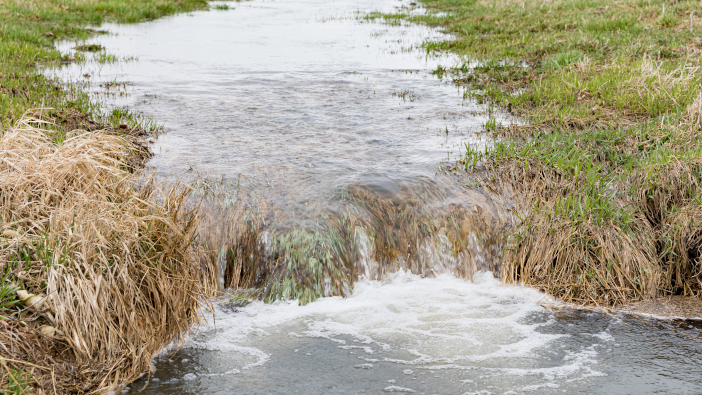February 2020 was the wettest February on record for the UK, with the meteorological winter – December, January, February – ranked as the fifth wettest on record since 1862. With this, Rothamsted Research reported that there was a massive increase in agricultural pollution.
The research recorded that pollutants in watercourses dramatically increased during the winter of 2019/20, as soil and fertilisers washed off arable fields with the excessive rainfall. As a result, high traces of pollutants such as nitrates were found in local rivers, the costs of environmental clean-ups increased, on average, twenty-fold, and the sediment lost from grazed grassland roughly doubled.
Research data was collected from specialist equipment that monitored water run-off from four fields on a research farm and three other nearby sites within the upper reaches of the River Taw catchment in Devon, as well as readings from a Met Office station based on the farm. The data shows a glimpse of what is to come as climate change is set to bring more rain and rising sea levels.
Hydrologist Professor Adie Collins, who led Rothamsted’s research, discussed how current on-farm mitigation strategies are not working very well: “pollution from intensive farming generates environmental damage with resultant costs, such as drinking water treatment to remove nutrients and sediment. Elevated pollution driven by extreme wet-weather increases such problems considerably,” added Professor Collins.
For the research, millions of measurements of rainfall, flow and water chemistry were collected every 15-minutes throughout a four-year period, using state-of-the-art sensors. The data showed how arable farmland can be a much greater contributor to water pollution than lowland grazing livestock, revealing its lack of resistance to wet weather.
“Compared to the period 1981 to 2010, the 19/20 winter had nearly 20% more rainfall, with about 209 mm falling in February 2020 – which is 133% more than the climatic baseline,” added Professor Collins.
October 2019 to March 2020 was most characteristic of predicted future climates, with days with more than 1 mm rainfall, says Professor Collins, and it was this weather pattern that was most associated with sediment – but not nitrate – loss.
“The elevated sediment losses are therefore a good insight into what we might expect in future climates,” he said.


